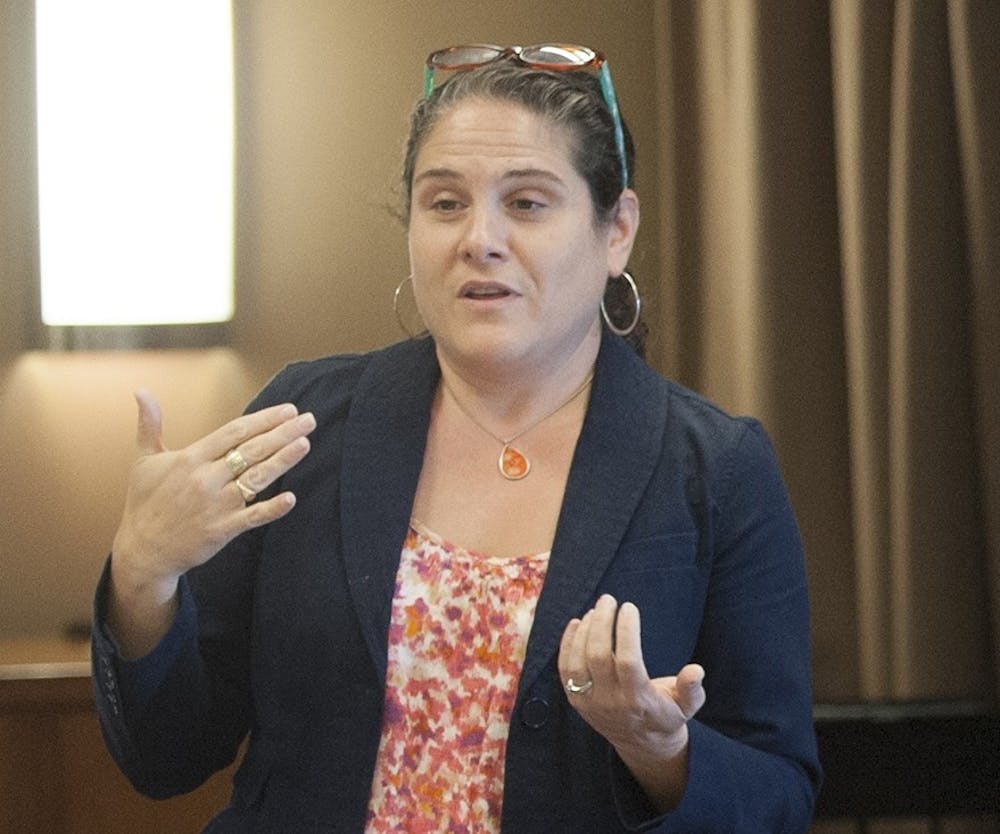A hearing scheduled for Friday to request that Jackie — whose story was the center of Rolling Stone’s now-retracted expose “A Rape on Campus” — hand over all phone and text records has been postponed to Dec. 4.
The hearing will be held in Alexandria, Virginia.
Associate Dean of Students Nicole Eramo, who featured heavily in the story, has requested the phone records for her defamation lawsuit against author Sabrina Rubin Erdely, Rolling Stone magazine and Wenner Media LLC.
The case, which was originally scheduled for a state court, will now be heard in a federal court. The hearing regarding phone records will be conducted in the United States District Court for the Eastern District of Virginia, Alexandria Division. The court did not provide a reason as to why the hearing was postponed.
Eramo originally filed a subpoena requesting Jackie’s phone records in July. Jackie objected, refusing to hand the records over in October on the grounds of ambiguity and lack of privacy, according to court records.
"‘Jackie’ is not a party to this case, nor does Plaintiff allege that any statement made by ‘Jackie’ was defamatory,” lawyer Palma Pustilnik, who is representing Jackie, said in a court document.
Eramo’s lawyers, Thomas Clare and Libby Locke of Clare Locke LLP, asked last Friday for a court order demanding Jackie hand over her records. In the request, they said Jackie’s objections of privacy concerns were invalid.
“The plain fact is that Jackie chose to make herself and her alleged sexual assault the subject of an article in a national magazine,” Clare and Locke said in a court document. “She cannot now claim that she has maintained this information as private or confidential.”
One way the court may compel Jackie to hand over her communication records is by restricting public access to them. By maintaining the privacy of her records, the court can still take the evidence into consideration during Eramo’s lawsuit, University Law Prof. Gregory Mitchell said.
“Jackie may be able to object and the court may very much enter a protective order to say [the records] can’t be disclosed more widely,” Mitchell said. “Any excerpts from these conversations may have to be filed under seal, that means where they’re not subject to the public looking at them.”
Mitchell said that ultimately Rolling Stone magazine and Sabrina Rubin Erdely will likely be required to turn in phone records.
“If there were phone conversations that were recorded — or even just notes made of those conversations made by the author — I think there's a really good chance that the plaintiff will get those kinds of records because those go to the heart of this case,” Mitchell said.
The phone records are integral to Eramo’s lawsuit because they may contain the narrative from which Erdely developed the article and villainized Eramo, her lawyers said. Therefore, the records are necessary to proceed.
“[Eramo] is entitled to seek discovery from Jackie directed at demonstrating that Rolling Stone's claims regarding [Jackie] and Dean Eramo's treatment of [Jackie] were false,” Clare said in a letter to Pustilnik.





